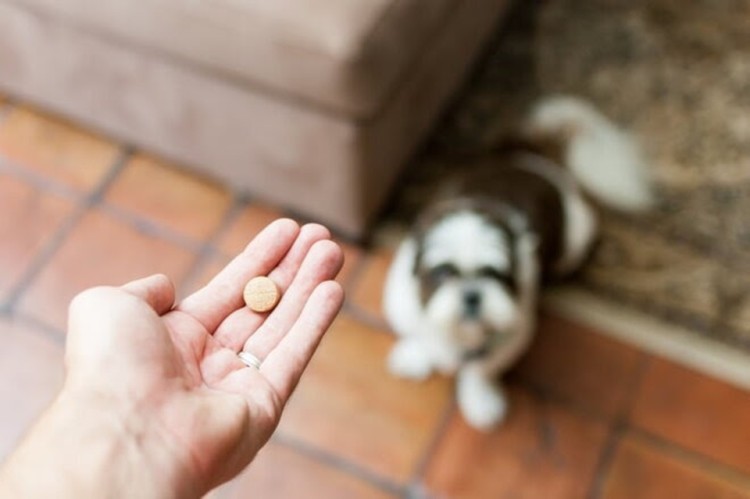But when your dog is licking everything in a rather obsessive manner, it could be a sign of an underlying health issue. Here are some reasons why your pooch might be licking excessively, and when you should consider seeking help from a professional.
Behavioral reasons for dog licking
Most of the time when a dog is licking everything, it’s not a sign of a serious health condition, but a dog’s way of expressing themselves and sensing the world around them. Common reasons why a dog may be licking excessively are to entertain themselves, calm themselves, or simply show affection for the person or pet that they’re licking.
If your dog is licking you, it could be attention-seeking behavior, a force of habit, or they may simply like the taste of what they’re licking. For example, if you notice that your dog licks your skin more after you get home from the gym, it’s likely that they like the taste of your sweat. (Gross, but likely true!) Or if your dog gives you more kisses after you’ve been away for hours, it’s likely a sign that they’re happy to see you.
These are all relatively harmless reasons for dog licking, but if you notice that your dog is licking their own skin excessively, keep an eye on it! This can result in hot spots, hair loss, or other skin problems.
How to correct licking behavior
The best way to help your dog stop licking everything is to redirect their attention. Use positive reinforcement training to encourage your dog to stop licking, and give them other activities to stay occupied. Long walks, chew toys, and treats are all good options to present to your dog when you find them obsessively licking objects or themselves.
Medical reasons for excessive dog licking
While dog licking is usually not a sign of an underlying health condition, it can be a reactive behavior to allergies, dermatitis, underlying pain, fleas, or even gastrointestinal issues. If your dog’s excessive licking is paired with other symptoms, contact your veterinarian immediately to get to the bottom of it.
Excessive licking can also be a symptom of dog anxiety. Whether it’s fear-related, environmental, or separation anxiety, if you suspect this is the case for your dog, you should seek help from a professional dog trainer or animal behaviorist.
If your dog’s behavior is getting to the point of compulsive licking, a.k.a. they’re groaning or whimpering as they lick, having trouble falling asleep, or staying on task due to the urge to lick, this is a major red flag. This can be a sign of cognitive dysfunction, obsessive-compulsive disorder, or another behavioral issue. You should reach out to an animal behaviorist and your vet to find the best path forward.
We know how difficult it can be watching your dog struggle with anxiety, OCD, and more. That’s why Pumpkin dog insurance plans help cover treatment for eligible behavioral issues, so your pup can get back to feeling like their best self.
